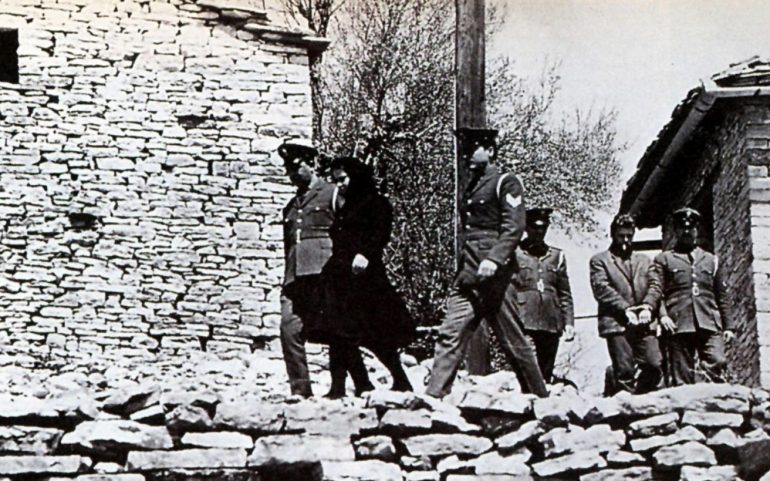It is a given that no matter what movie you watch, no matter how good it is, no matter how convincing the actors play, life still writes the best screenplays. Nothing can compare to what happens around us every day.
At the same time, however, there is another reality. In the hands of a very good director a true story can "take off". To be made in such a way that it is like living it again. And if you have not experienced it, it is as if you were part of it.
In the history of Greek cinema There were many true stories that were made into a film, although in previous decades directors preferred to have a true story as a basis and then to "shape" their own fiction around it.
There are, however, several that capture almost entirely a tragic story. One of these films was to be a diamond film that marked Greek cinema and put it on a brand new path.
A debut that made history
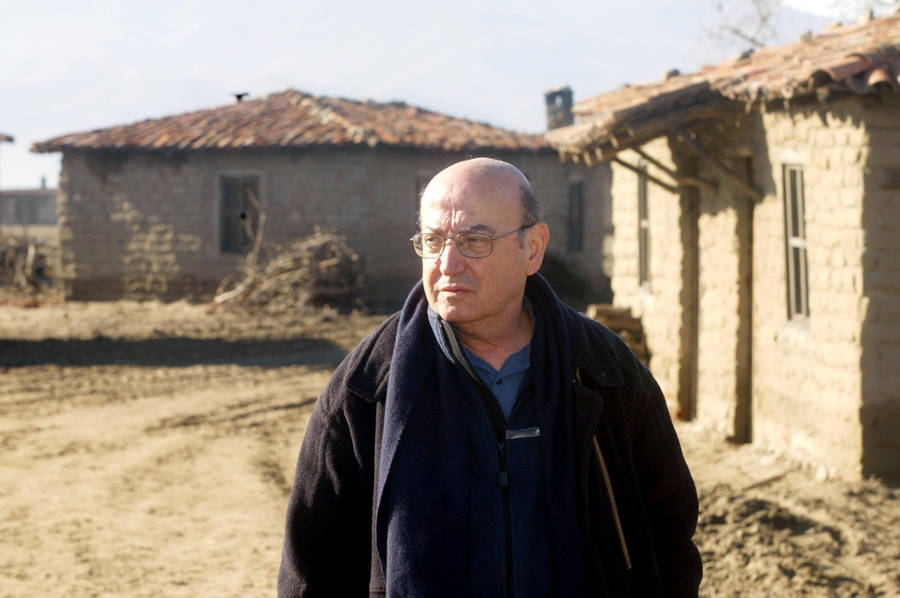
There is a cut-off in the course of Greek cinema and this is none other than 1970. It was the year that the general domestic cinephile audience first heard the name Theodoros Angelopoulos.
That year the unforgettable director gave the public his first feature film. The "Representation" which is anything but a simple movie.
It is a film-station for the new Greek cinema, as it is the first film that changes the established "straight" narrative and directorial stylization that characterized the commercial cinema of the previous decades.
The case takes place in a mountain village of Epirus and concerns the police and journalistic investigation of the death of an immigrant, who a few days after his return from Germany is murdered by his wife and her lover. Murder symbolizes the death of a place, of a world.
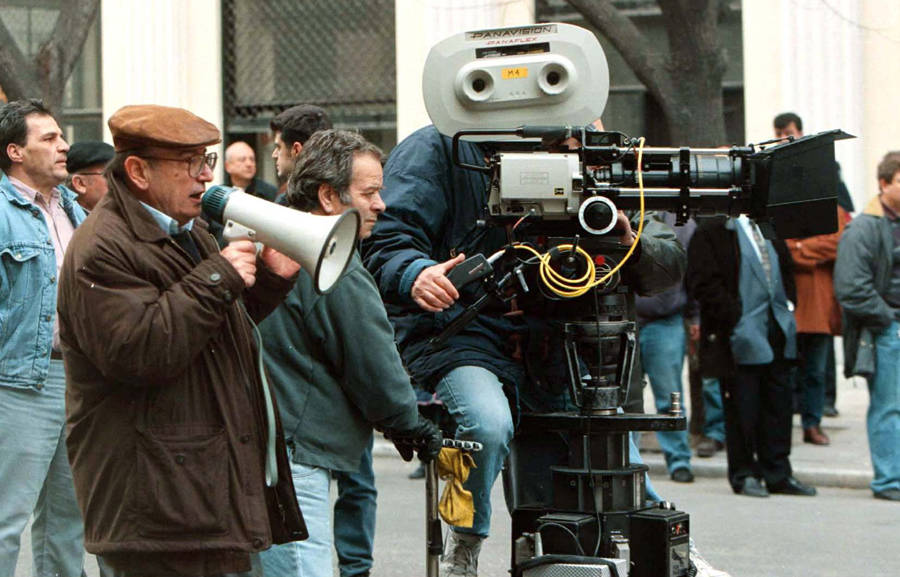
The film received very good reviews, although it did not become well known abroad. Won 5 awards in the 11th Thessaloniki Film Festival: best feature film, second female role (Toula Stathopoulou), photography (George Arvanitis), debut director and critics of best feature film. It also won the FIPRESCI Award - Special Mention at the Berlin International Film Festival.
It was released in cinemas in November 1970 and in its first screening it sold a total of almost 13.000 tickets in a season that was completely dominated in all areas by "Lieutenant Natasha" by Nikos Foskolos with Aliki Vougiouklaki and Dimitris Papamichael.
The tragic true story behind "Representation"
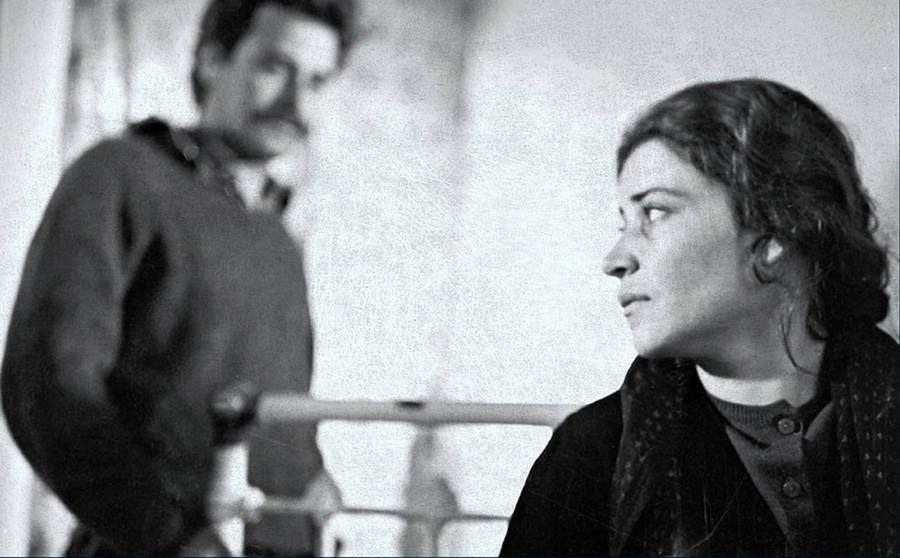
"I started my travels in '' in '' Greece from '' Representation ''. I went to Corfu to read the case file. Then I went to the village where the crime had taken place. I sat in the cafe. The locals, ashamed of what had happened in their village, gathered and looked at me motionless. "I understood that I had to leave as soon as possible," Th. Angelopoulos had said in an earlier interview.
As can be easily understood from the words of the great director, the atmosphere in the village where the real events behind "Representation" took place was anything but friendly… But let's take things from the beginning.
April 1968. One year since the imposition of the military dictatorship of "April 21". Polyneri Thesprotia. A small mountain village with few houses, less than 120 inhabitants, mostly women, children and the elderly, as most of the younger men, who are of productive age, have migrated to cities or abroad.
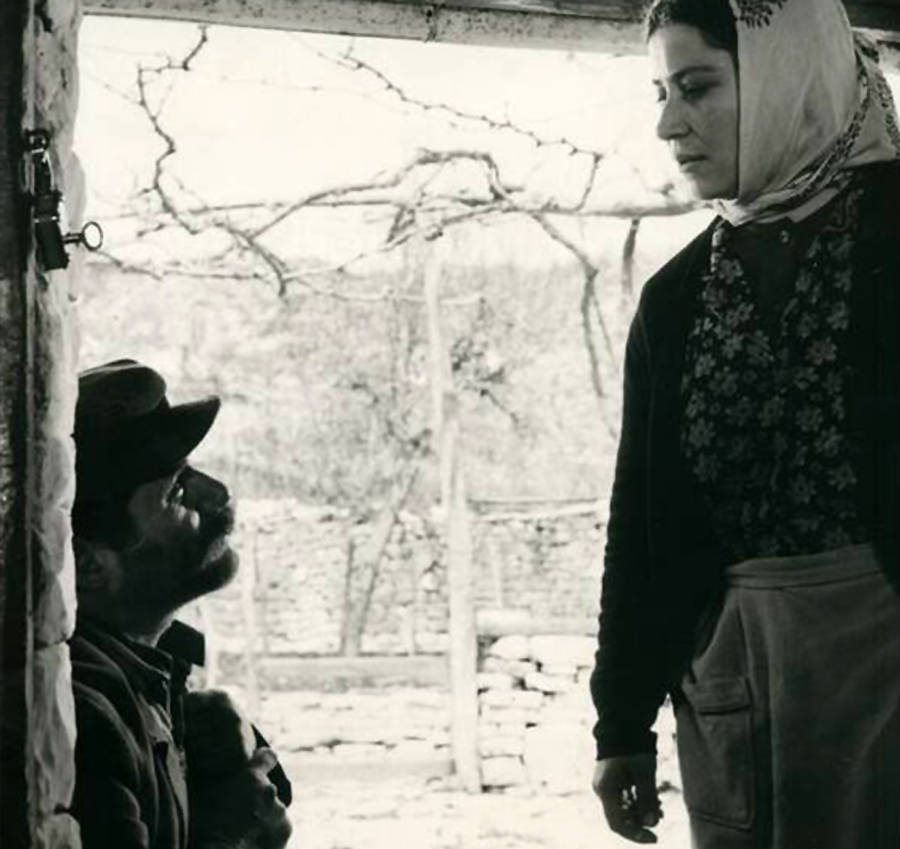
On April 15 (Sunday of the Poor) of 1968, 45-year-old Lamprini Pantou from Polyneri arrives on foot at the Plataria Gendarmerie Station (which is about 8 km away) to make a serious complaint. He claims that Harisi Pantos's brother-in-law, 45 years old, father of four children, has mysteriously disappeared from the village since the 5th of the month, without giving any signs of life. He adds, in fact, that although his wife Angeliki, 40 years old, repeats that he has left for Germany (where Char. Pantos had previously gone as an immigrant), she herself does not believe it and rightly assumes that she has been murdered, since It is rumored that Aggeliki has an affair with the 40-year-old farmer and resident of Polyneri, Kostas Tzortzis, married and the father of three children.
Police immediately begin investigations. It is established that on the day of his "disappearance", Harisis Pantos had stayed in a hotel in Ioannina and had issued a long-distance bus ticket to Athens in his name.
In addition, Aggeliki Pantou presents to the gendarmes a letter from her husband, which was sent to her on the disputed dates from Ioannina. In this letter, Char. He always stated unequivocally that he left Polyneri in order to return to Germany. The officers participating in the investigation are shocked; they do not have any incriminating evidence against Aggeliki Pantou and Costas Tzortzis. In fact, as reported in the newspapers, Aggeliki told Lamprini that "you had a friend of my husband and you did not like that he left, so you accuse me of killing him. "But I will send you to the military court where you are accusing me."
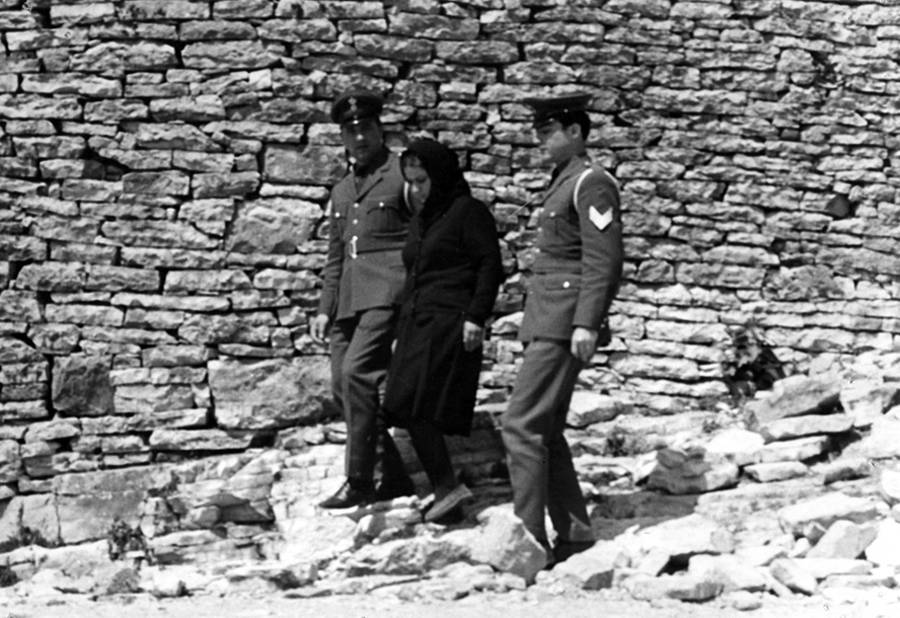
However, Lamprini insists on her complaints. "Search, search everywhere, for the name of God, my soul says it was spoiled. "I also told the deceased that his wife would be eaten by the lysara," he allegedly told the gendarmes, according to newspaper reports at the time. From the new researches that are carried out, it appears that indeed Ag. Everywhere, K. Tzortzis had a long-term love affair, known to most of the inhabitants of Polynerion, and perhaps even Char himself. Anyway!
With this information, on April 28, Aggeliki Pantou is invited to appear at the Plataria Gendarmerie Station and K. Tzortzis in Igoumenitsa. Angeliki denies everything. "What can I say; I received a letter from Ioannina that he left for Germany "he claims, while Kon. George constantly repeats that "I have nothing specific about this disappearance". The gendarmes, however, are already convinced of their guilt. And they decide to use the classic method of "bluff": Major Theodoropoulos and Lieutenant Kokolakis visit Angeliki and tell her that K. Tzortzis has confessed everything and even names her as a murderer. Then, Angeliki breaks out: "Lies! We killed him together. "He was holding him and I drowned him."
The creepy description of the crime
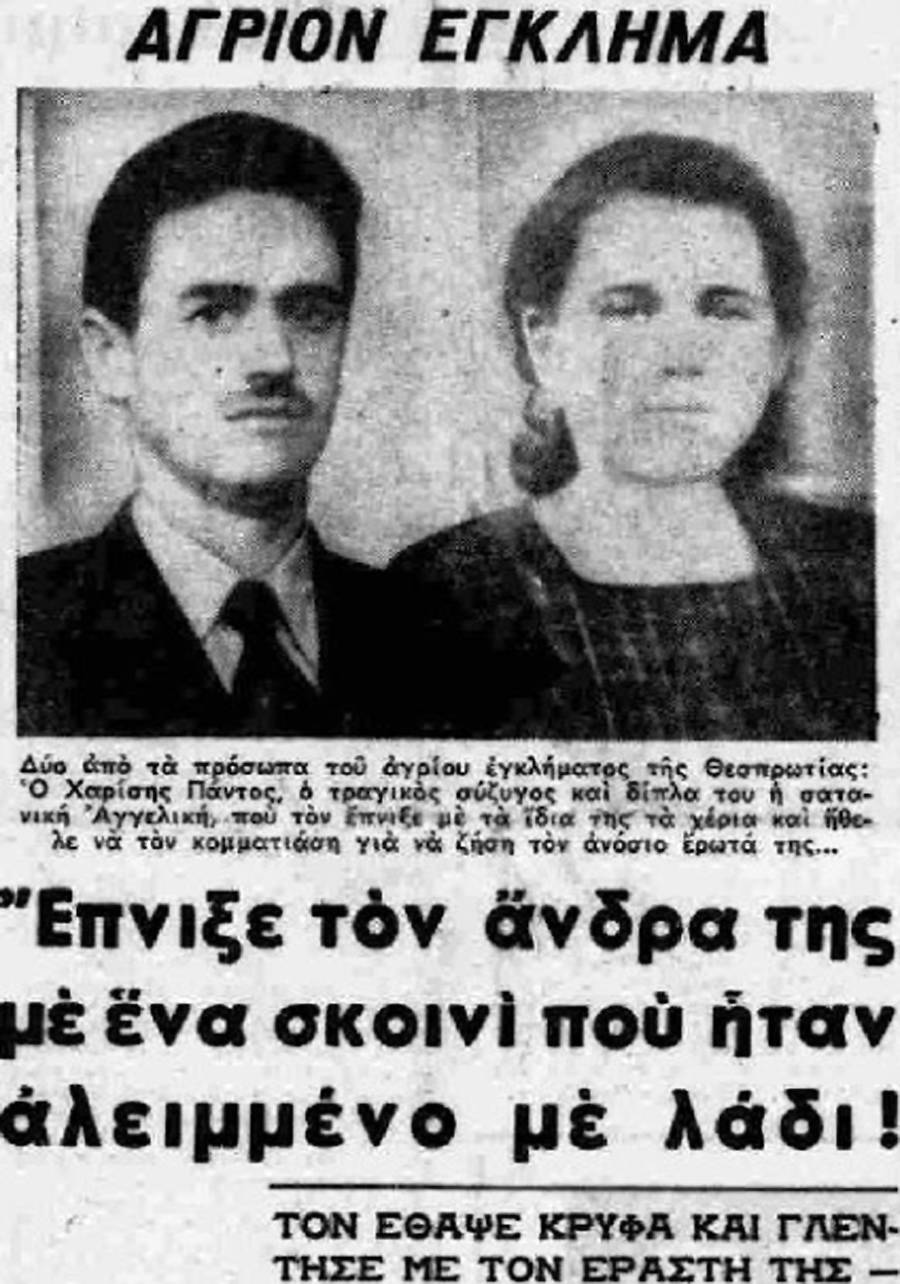
The crime was committed on the afternoon of April 5, at the home of the victim. "We killed him in the bedroom," Angeliki said in her apology to Gendarmerie officers.
"Kostas was waiting for him behind the door. He grabbed his hands and I passed the noose around his neck. I pulled hard, very sharply, the rope and cracked his neck and he died. He fell down χι No, he did not spartan, he finished immediately. I held the rope a little longer. It was 5 or 6 in the afternoon and at that moment we heard from afar the voices of my children returning from school. We then opened the basement hatch, dropped the corpse and closed it again. Costas left and I put the children to eat and sleep. At midnight, Costas returned, as we had agreed. We went down to the basement, folded the corpse with a sheet and threw it in the yard in a pit that the deceased himself had dug the previous day to put lime. Costas carried stones and kicked him, because as he told me, sometimes the dead swell and the soil rises and the smell comes out. After the stones we threw dirt. Early in the morning I went down and dug the whole garden. 'I will plant onions' I told the children as if they woke up. I gave them bread with oil to eat and sent them to school. I planted in addition to onions and a quince. Where the quince is, go and dig. "Below is his head."
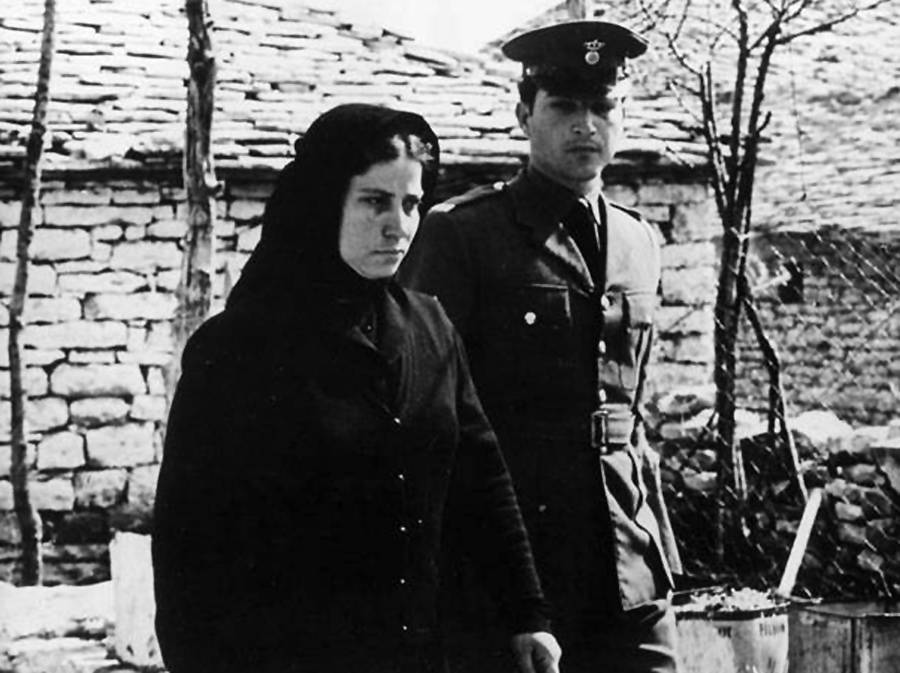
The men of the gendarmerie located the body of Char. Everywhere in the garden of the house, buried at a depth of one meter, near the ground floor window of the couple and children. The loop was passed around his neck and the medical examiner who examined him found a smear of fat, traces of which were also present on the victim's neck.
In the trial that followed, George and Pantou were sentenced to life imprisonment. They spent 20 years in prison. Shortly after their release, as mentioned in the book "Forgotten front pages, reportage from modern Greek short history" by Giannis Ragos (POLARIS Publications), Aggeliki was killed in a car accident, while the traces of George disappeared and no one heard from him again. him.
